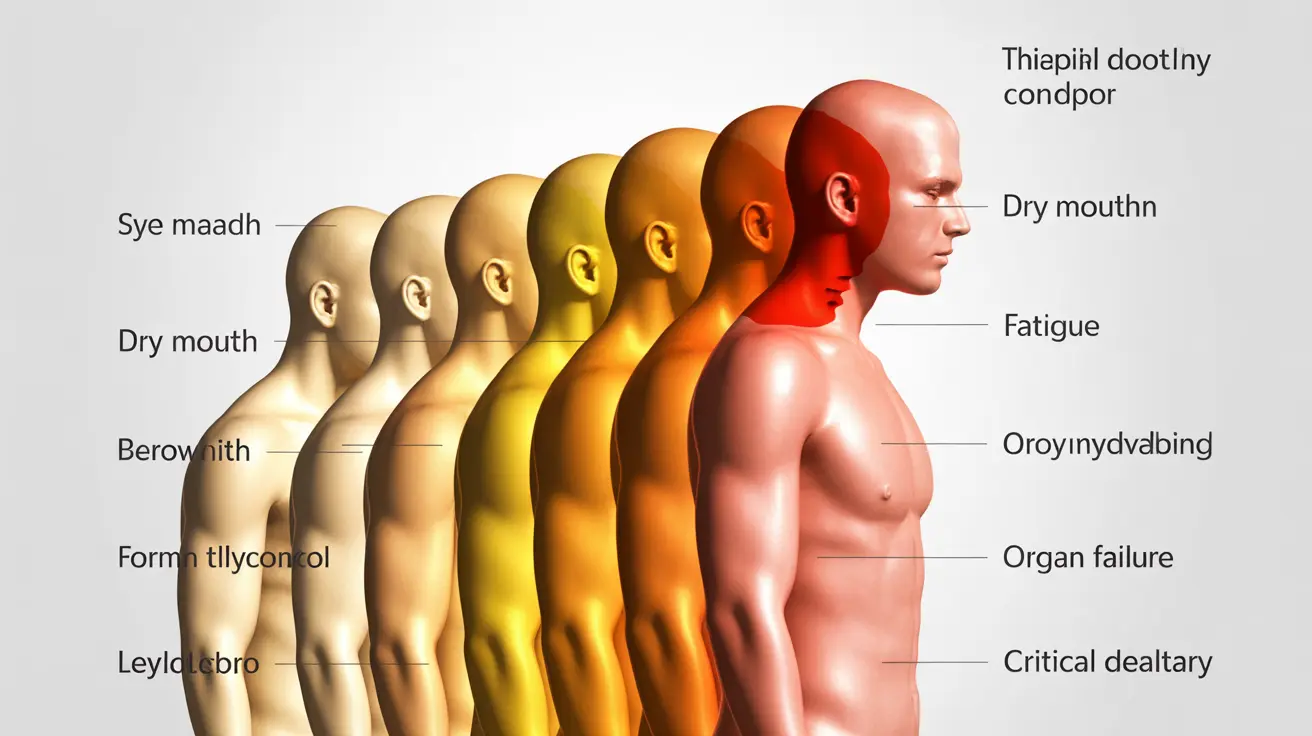Water is essential for human survival, playing a crucial role in every bodily function from cell operation to temperature regulation. Understanding how long a person can survive without water is vital knowledge for emergency preparedness and medical awareness. While the human body can endure several weeks without food, the timeline for water deprivation is dramatically shorter and more severe.
The Critical Timeline of Water Deprivation
The general medical consensus indicates that humans can typically survive between 3 to 7 days without water, though this timeline can vary significantly based on multiple factors. In extreme conditions, some individuals might survive only 2-3 days, while others might endure slightly longer under optimal circumstances.
Environmental conditions, physical health, and activity levels all play crucial roles in determining survival time without water. For instance, someone in a hot, humid environment will dehydrate much faster than someone in a cool, moderate climate.
Factors Affecting Water Survival Time
Environmental Conditions
Temperature and humidity levels significantly impact how quickly the body becomes dehydrated. Hot, dry environments accelerate water loss through sweating, while humid conditions can impair the body's cooling mechanisms.
Physical Activity
The more active a person is, the more quickly they'll deplete their body's water reserves. Even minimal physical activity in a water-deprived state can significantly reduce survival time.
Individual Health Factors
Age, overall health status, and pre-existing medical conditions can all affect how long someone might survive without water. Elderly individuals and young children are typically more vulnerable to dehydration.
The Progressive Effects of Water Deprivation
Early Stages (24-48 hours)
Initial symptoms of water deprivation include:
- Increased thirst
- Dry mouth and lips
- Reduced urination
- Dark yellow urine
- Fatigue and weakness
- Headache
Advanced Stages (48-72 hours)
As dehydration progresses, more severe symptoms develop:
- Extreme thirst
- Confusion and irritability
- Rapid heartbeat
- Low blood pressure
- Decreased skin elasticity
- Sunken eyes
Critical Stage (Beyond 72 hours)
Without intervention, the body enters a critical phase characterized by:
- Organ failure
- Mental confusion
- Seizures
- Loss of consciousness
- Potential death
Frequently Asked Questions
How long can a person typically survive without drinking water?
A person can typically survive 3-7 days without water, though this varies significantly based on environmental conditions and individual factors. Some might only survive 2-3 days in harsh conditions, while others might last slightly longer in optimal circumstances.
What are the early symptoms of dehydration from lack of water?
Early symptoms include increased thirst, dry mouth, reduced urination, dark yellow urine, fatigue, headache, and dizziness. These typically appear within the first 24-48 hours of water deprivation.
Why does survival time without water vary between individuals?
Survival time varies due to factors including age, overall health status, environmental conditions, physical activity level, and pre-existing medical conditions. Additionally, body composition and metabolic rate can influence how quickly dehydration progresses.
What are the risks and bodily effects of going too long without water?
Extended water deprivation can lead to severe dehydration, organ failure, brain damage, and death. The body experiences progressive deterioration affecting all major systems, from circulation to cognitive function.
How does dehydration differ from going without food in terms of survival time?
While humans can survive without food for several weeks (potentially up to 8-12 weeks with adequate water intake), survival without water is limited to just 3-7 days. Water is more immediately critical for basic bodily functions and survival.




